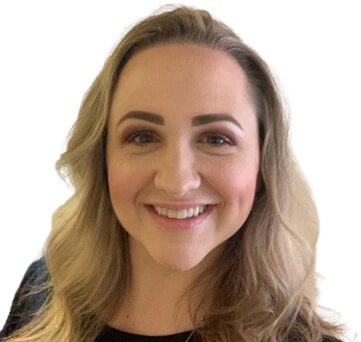Cocaine Addiction Rehab
Cocaine is a highly addictive illegal drug that can be very difficult to quit without attending a professional treatment program. Addiction research shows that cocaine causes surges in dopamine that begin to drain the brain’s natural supply of this important chemical. This process is what fuels the cycle that keeps people using cocaine.
Without help, cocaine addiction only gets worse — and can be deadly. According to the CDC, last year saw a 26.5% increase in cocaine overdose deaths. If you or a loved one is abusing cocaine, it’s a serious and dangerous problem. Learn about the signs of cocaine abuse and what cocaine addiction treatment is like.

Signs of Cocaine Addiction
- Financial issues
- Work or school challenges
- Feelings of guilt after using cocaine
- Inability to cut back or quit cocaine
- Obsessive thoughts about cocaine
- Increase in cocaine use
- Paranoid thinking
- Memory loss, confusion, and other cognitive issues
- Rapid speech
- Uncharacteristic risk taking
- Dishonesty
- Criminal activity
- Poor judgment and decision making
- Mood fluctuations
- Anger and irritability
- Violence
- Frequent nose bleeds
Cocaine can also cause intense “crashes” after a cocaine binge. That’s why some cocaine abusers feel severely depressed or anxious after a period of use.
Short-Term Effects of Cocaine Abuse
Crack cocaine can last from several minutes to a few hours, depending on the amount you use and the method of use — snorting, smoking, or injecting. The short-term effects of cocaine that drug users seek is the “high” that comes from the coca plant, from which cocaine is derived. These short-term cocaine effects may include:
- Euphoria
- Increase in energy
- Increase or decrease in mental alertness
- Increased alertness/ less need for sleep
- Decrease in appetite
Dangers of Cocaine Use
The high cocaine provides is not worth the effects on your health and the agonizing experience of addiction. Cocaine enters the bloodstream and has alarming effects on your brain. Cocaine is a stimulant that increases your heart rate and blood pressure by restricting blood vessels. In some cocaine users, cocaine has increased their heart rate so much that they experience cardiac arrest. This dangerous effect of crack and cocaine can happen on the first use of the drug or after years of cocaine abuse. Some people have died after their first use. Others have used cocaine for years before suddenly dying — even with no change in the amount they use.
Dangers and uncomfortable effects of cocaine dependence or abuse may include:
- Blood vessel constriction
- Raised blood pressure
- Increased heart rate
- Heart irregularities
- Dilated pupils
- Increased body temperature
- Muscle twitches
- Balance issues
- Panic attacks
- Hallucinations
- Cardiovascular problems
- Erratic behavior
- Anger
- Anxiety
- Paranoia
- Hallucinations (audio and visual)
- Restlessness
- Cocaine overdose
- HIV and other infectious diseases for people who inject cocaine (shared needles)
Mixing Cocaine with Other Drugs
Cocaine and Alcohol
Alcohol is commonly used with cocaine. People may use cocaine (a stimulant) to lessen the sedating effects of alcohol (a depressant). They believe using alcohol with cocaine helps them prolong the effects of drugs or alcohol and stay up longer to do so. One of the problems with this is that cocaine may make you feel “less drunk.” This can lead you to drink more than usual, then take more cocaine to feel “up,” and the cycle continues. This puts you at high risk for alcohol or cocaine overdose. Short- and long-term effects of cocaine and alcohol may include:
- Seizures
- Heart attacks
- Stroke
- Irregular heartbeat
- High blood pressure
- Agitation
- Difficulty breathing
- High body temperature
- Anxiety
- Hallucinations
- Overdose
- Death
Cocaine and Heroin
Known as a “speedball,” mixing cocaine and heroin or other opioids can come with severe consequences. A speedball or power ball is the combination of a stimulant and a depressant. People take speedballs intravenously or by snorting them. They may mix them together or use them immediately after one another. Users hope to achieve a specific and more powerful high through this combination. Mixing stimulants and opioids can put you at risk for negative effects of both drugs, including:
- Paranoia
- Respiratory failure
- Overdose
- Heat attack
- Aneurysm
- Stroke
- Confusion and stupor
- Irregular heartbeat
Cocaine and Methamphetamines
Because cocaine and meth are both stimulants, and they compound the risks of these types of drugs. Stimulants speed up your system by releasing excessive dopamine and serotonin. Combining cocaine and meth puts you at greater risk for:
- Irregular and rapid heart rate
- Agitation
- Tremors
- High body temperature
- Insomnia
- Current and future heart problems
- Extreme “crashes”
- Seizures
- Panic attacks
- Nausea
- Diarrhea
- Trouble breathing
- Overdose
Cocaine and Marijuana
Some people combine cocaine and marijuana for the same reasons they mix cocaine and alcohol. They like the high that the combination of a stimulant and a depressant provides. Mixing cocaine and weed can increase the negative effects of the drugs, like:
- Irregular heart rate
- Anxiety
- High blood pressure
- Paranoia
- Seizure
- Insomnia
Any type of polysubstance use—abusing more than one substance—substantially increases your risk of negative health effects and addiction.
How Do You Treat Cocaine Addiction?
Cocaine users are affected psychologically, emotionally, and physically by the continued use of the drug. Cocaine addiction treatment must address all of these issues. The first step in cocaine recovery is eliminating the substance from your body and starting to correct chemical imbalances from the drug. Following medically assisted detox, inpatient or outpatient treatment helps you explore triggers and learn healthy coping skills.
Medical Detox
Cocaine withdrawal symptoms aren’t as severe as alcohol or heroin, but detox should never be attempted without medical help. Withdrawal symptoms can be uncomfortable, and you may experience intense cocaine cravings, making it difficult to refrain from using.
Some addiction treatment centers use propranolol, which can reduce cocaine cravings. It’s a beta-blocker medication designed for angina which has shown results in helping anxiety and stress. If you’re abusing more than one substance, such as cocaine and alcohol, detox will be much more complex and dangerous. It’s imperative you undergo detox and withdrawal in a medical facility or addiction treatment center.
Cocaine has a “dormant” quality that can stay in the physical system for months, even years. It is imperative that after detox, you work on the psychological, emotional, social, and spiritual challenges behind drug use. This helps you refrain from using cocaine when you have cravings for it.
Behavioral Therapy
Treatment for cocaine addiction usually involves a combination of individual therapy and group therapy. Many drug and alcohol rehab centers use addiction treatment approaches like cognitive behavioral therapy (CBT), motivational interviewing, and dialectical behavioral therapy (DBT). These therapeutic modalities help you:
- Identify triggers and unhealthy thought patterns.
- Learn how to change thoughts and behaviors that fuel substance abuse.
- Find your own motivation for change and set goals.
- Develop healthy coping skills.
- Co-occurring mental health disorders
- Trauma and PTSD
- Dysfunctional family dynamics
- Grief and loss
- Low self-esteem
- Poor coping skills
Relapse Prevention Training
An important part of alcohol and drug addiction treatment is relapse-prevention training. Cocaine has occupied a large part of your life. You must find activities to fill the space left by drugs and learn healthy ways to cope with triggers. Preventing relapse means following a continuing care plan and putting into practice what you learned in drug rehab.
Common relapse-prevention practices include: An important part of alcohol and drug addiction treatment is relapse-prevention training. Cocaine has occupied a large part of your life. You must find activities to fill the space left by drugs and learn healthy ways to cope with triggers. Preventing relapse means following a continuing care plan and putting into practice what you learned in drug rehab.
Common relapse-prevention practices include:
- Attending individual therapy and/or group therapy
- Participating in 12-step programs like Narcotics Anonymous (NA)
- Having a sponsor
- Regular exercise
- Taking psychiatric medications as prescribed
- Healthy hobbies
- Involvement in treatment center alumni groups
- Building a sober network of peers
- Participating in recovery coaching
- Staying in a sober living residence if your home environment is not healthy
Dual Diagnosis Treatment
About half of people with addictions also have at least one mental illness diagnosis according to the National Institute on Drug Abuse. This is called a dual diagnosis or co-occurring disorders. People with mental health disorders may be using drugs and alcohol to self-medicate their psychiatric symptoms. For instance, a depressed person may use cocaine to make them feel more “up,” or an anxious person may drink alcohol to calm their nerves. In reality, abusing drugs and alcohol only make these problems worse.
Effective treatment of cocaine abuse will include a psychiatric evaluation. If you’re struggling with anxiety, depression, bipolar disorder, or other conditions, a psychiatrist may prescribe medications to help you manage those symptoms. When your mental health symptoms are better controlled, you may feel less of a pull to use drugs and alcohol to self-soothe difficult feelings.
Does Insurance Cover Cocaine Addiction Treatment?
There is a good chance that your insurance will pay for treatment costs fully or partially. Most insurances are required to cover behavioral health conditions the same way they cover medical conditions. The best way to determine your coverage for inpatient treatment or an outpatient treatment program is to call us for a free insurance benefits check. Our treatment advisors will work directly with your insurance company to determine your benefits for substance use disorder treatment. We’ll make sure you understand your coverage and any out-of-pocket costs.
Cocaine Addiction Treatment at Vogue Recovery
Cocaine addiction treatment at Vogue Recovery Center blends the latest in addiction medicine with a multidisciplinary approach to provide a customized, goal-oriented experience. We consider your family history, life events, unique stress factors, relationship challenges, and individual patterns and preferences to design a customized treatment plan that meets your personal needs. Loved ones can be involved in treatment if you choose through our family program or family therapy. We provide a full continuum of care that includes:
- Medical detox
- Inpatient rehab
- Partial hospitalization program (PHP)
- Intensive outpatient program (IOP)
- Outpatient addiction treatment
- Veterans program
Our treatment programs are evidence-based and address the root causes of substance use disorders like co-occurring disorders and trauma. We offer both traditional and holistic types of treatments so you can find what best supports your road to recovery. Vogue’s treatment providers are compassionate and truly care about you and your addiction recovery. They are trained in several types of therapy and have helped thousands of people take back their lives from substance abuse.
Don’t wait another day. Call us to take the first step to a better life.
Self-Assessment: Am I Addicted?
"*" indicates required fields

Medically Reviewed by Vaun Williams, Psy.D., LPC


